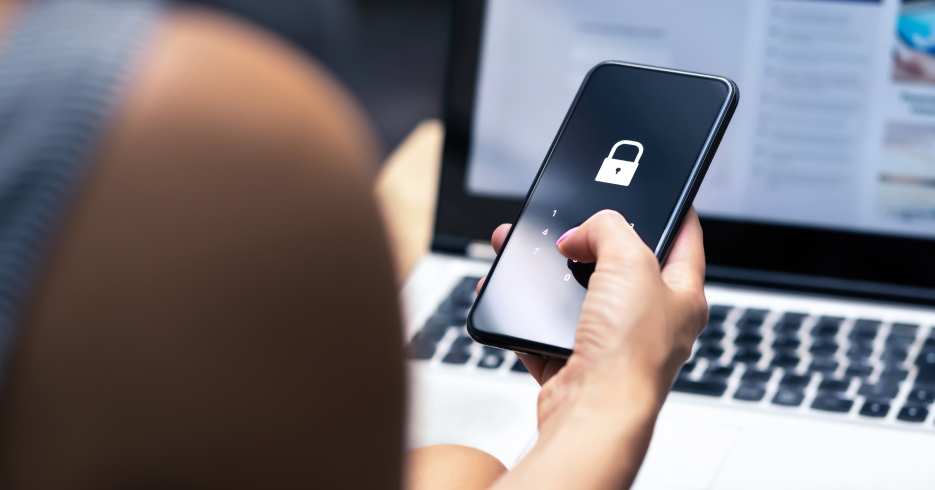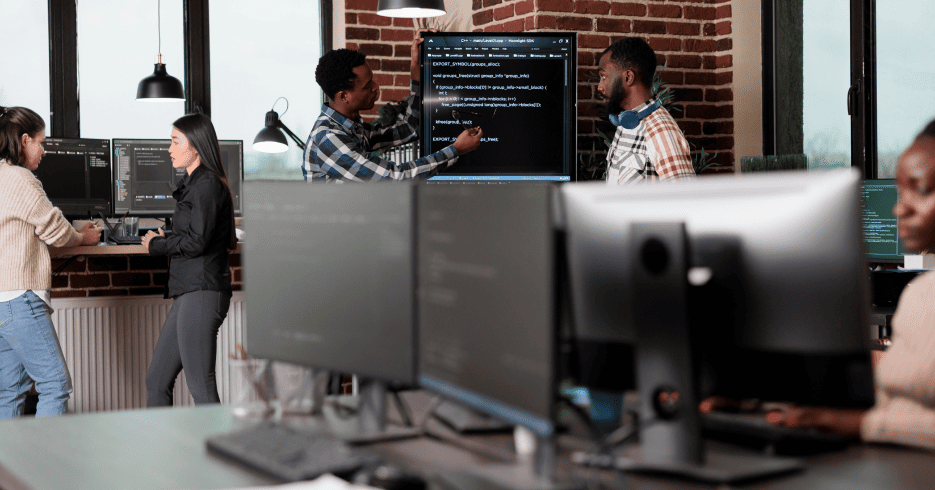In today’s digital age, protecting yourself online has become more crucial. As we commemorate Cybersecurity Awareness Month, it’s the perfect time to reflect on your online habits and take steps to enhance your internet safety. With cyber threats evolving rapidly, understanding how to safeguard your personal information and digital assets is essential and empowering. It gives you the confidence to navigate the online world securely, knowing you have the knowledge and tools to protect yourself.
This article will equip you with practical, easy-to-implement strategies to strengthen your online protection. We’ll delve into the significance of cybersecurity awareness and demonstrate how to construct a solid cyber defence.
The Importance of Cybersecurity Awareness
Rising cyber threats in the digital age
In today’s interconnected world, cybersecurity has become more crucial than ever. The digital landscape constantly evolves, and with it, threats to your online safety. The constant rise of online threats underscores the need for heightened awareness and proactive measures to protect yourself and your data. Staying informed about these threats is key to staying vigilant and prepared.
Johan, Head of Managed IT at Warp Development, shares his insights: “With the growing reliance on digital platforms, understanding and implementing strong cybersecurity practices is essential to protecting personal and organisational data from increasing cyber threats. It helps prevent data breaches, identity theft, and financial losses.”
The role of individual responsibility in online safety
As an individual, you play a pivotal role in protecting your personal information. Being mindful of what you share online, using strong passwords, and understanding the risks associated with your devices and online activities are all vital components of maintaining your cybersecurity.
Goals of Cybersecurity Awareness Month
Cybersecurity Awareness Month, a tradition observed every October since 2004, is designed to draw attention to these critical issues. The theme ‘Secure Our World’ underscores the importance of taking daily actions to mitigate online risks. This initiative fosters collaboration between the public and private sectors to enhance cybersecurity awareness and stimulate discourse on cyber threats at a national and global level.
Key focus areas include:
- Using strong passwords and a password manager
- Turning on multi-factor authentication
- Recognising and reporting phishing
- Updating software
By participating in Cybersecurity Awareness Month and implementing these practices, you can significantly improve your online safety and contribute to a more secure digital environment for everyone. It’s a collective effort, and by doing your part, you’re protecting yourself and contributing to the online community’s safety.
Building Your Cyber Defense
To protect yourself online, you need to build a strong cyber defence. This involves using effective tools and practices that enhance your online security.
Let’s explore some key strategies to boost your cybersecurity.
Using password managers effectively
One of the most crucial steps in building your cyber defence is using strong, unique passwords for all your accounts. However, remembering multiple complex passwords can be challenging. This is where password managers come in handy. These tools securely store and encrypt your passwords, allowing you to use strong, unique passwords for each account without memorising them. Using a password manager significantly reduces the risk of a data breach due to weak or reused passwords.
Enabling and managing multi-factor authentication
Multi-factor authentication (MFA) adds an extra layer of security to your accounts. You must provide two or more evidence to verify your identity when logging in. This could be something you know (like a password), something you have (like a mobile device), or something you are (like biometrics). Even if your password is compromised, MFA keeps your account secure by requiring additional verification. Many services offer MFA options, including SMS codes, authenticator apps, or push notifications. Enable MFA on all your important accounts to significantly enhance your online security.
Johan further discusses the importance of password managers and multi-factor authentication (MFA): “Password managers and MFA significantly enhance cybersecurity by adding critical layers of protection. Password managers generate and securely store strong, unique passwords for each account, reducing the risk of password reuse. MFA introduces an additional verification step, making it much harder for unauthorised users to gain access to accounts.”
Implementing virtual private networks (VPNs)
A Virtual Private Network (VPN) is another powerful tool for your cyber defence arsenal. VPNs create an encrypted tunnel for your internet traffic, hiding your online activities from prying eyes. They also mask your IP address, making it harder for websites and services to track your location. Using a VPN, especially when connecting to public Wi-Fi networks, adds an extra layer of privacy and security to your online activities. Many VPN services are available, offering easy-to-use apps for various devices.
Staying Safe on Various Platforms
Securing your email communications
To protect your email, create strong, unique passwords for each account. Use uppercase and lowercase letters, numbers, and special characters. Consider using a password manager to help you securely generate and store complex passwords. Enable two-factor authentication (2FA) for an extra layer of security, making it harder for unauthorised users to access your account.
Be cautious when opening attachments or clicking email links, especially from unknown senders. These could contain malware or lead to phishing sites. Always verify the sender’s identity and hover over links to check their destination before clicking. Avoid using public Wi-Fi networks when accessing your email, as these can be easily compromised.
Protecting your social media accounts
Set your social media accounts to private and regularly review your privacy settings. This allows you to control who sees your posts and personal information. Be mindful of the information you share online, as cybercriminals can use this for social engineering attacks.
Use the block function to protect yourself from spam accounts and unwanted interactions. Enable 2FA on all your social media accounts for added security. Be wary of phishing attempts on social media platforms. Don’t click on suspicious links in posts, tweets, or direct messages, even if they appear to come from someone you know.
Safe online shopping practices
When shopping online, always use a secure connection. Look for “https” in the website’s URL and a padlock icon in the address bar. Stick to reputable online stores and be cautious of deals that seem too good to be true. Use a credit card or PayPal for online purchases, as they offer better protection against fraud than debit cards.
Before making a purchase, review the store’s shipping terms and return policy. Be wary of sites that require more information than necessary to complete a transaction. Install reliable internet security software to protect your device from malware and other online threats while shopping.
Responding to Cyber Threats
Identifying signs of a cyber attack
Be alert for unusual behaviour from your devices. If your computer suddenly slows down, crashes frequently, or displays repeated error messages, it might be infected with malware. Watch out for unexpected pop-ups, new toolbars, or changes to your default search engine. These could be signs of a cyber attack.
Johan shares his tips on how to identify cyber-attacks: “Indicators of a cyber attack on a device or account may include unusual activity, such as unexpected password changes or unfamiliar login locations, unauthorised transactions, sudden device performance slowdowns, frequent crashes, and the appearance of unfamiliar programs.”
Pay attention to your online accounts. Suppose you can’t log in, receive notifications about password changes you didn’t make, or notice strange posts on your social media. In that case, your account may have been compromised. Also, be wary of emails from your contacts with random links or pleas for money.
Steps to take if you’ve been hacked
Johan gives some tips on what to do when you suspect you have been hacked: “If an online account is hacked, immediate actions should include changing passwords, enabling multi-factor authentication (MFA), notifying the service provider, monitoring accounts for suspicious activities, and considering identity theft protection services.”
By implementing strong passwords, multi-factor authentication, and being cautious with your personal information, you can significantly reduce your risk of falling victim to cyber threats. Remember, cybersecurity is an ongoing process that needs regular attention and updates to keep pace with evolving threats.
Cybersecurity Awareness Month reminds us to evaluate and strengthen our online defences. By protecting yourself, you contribute to a safer digital environment for everyone.
If you need help protecting yourself and your business better online, please get in touch with us.



